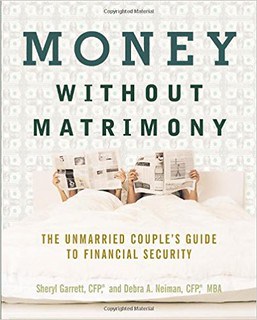Defining retirement: What does it mean to be retired?

Welcome to "retirement month" at Get Rich Slowly. During the month of March, we'll explore all sorts of topics related to retirement and financial independence. To start, let's look at the defintion of retirement.
What does it mean to be retired?
This question probably seems silly to some of you. After all, isn't there a dictionary definition of retirement? There is: "The action or fact of leaving one's job and ceasing to work." As is sometimes the case, however, the dictionary definition is less than satisfactory when you take a closer look.
Thoughts on systemic poverty, fault, and responsibility
I write a lot at Get Rich Slowly about habits that foster wealth and success.
Like it or not, there are very real differences between the behaviors and attitudes of those who have money and those who don't. This isn't me being classist or racist. It's a fact. And I think that if we want ourselves and others to be able to enjoy economic mobility, to escape poverty and dire circumstances, we have to have an understanding of the necessary mental shifts.
The problem, of course, is that it's one thing to understand intellectually that wealthy people and poor people have different mindsets, but it's another thing entirely to be able to adopt more productive attitudes in your own life.
The secret to a rich life
There's this idea in our society that if you want something amazing, there's got to be some secret to getting it.
People want "magic bullet" answers. They think if they look long enough and hard enough then maybe, just maybe, they'll stumble upon the SECRETS "THEY" DON'T WANT YOU TO KNOW.
The optimization trap
Since returning to Get Rich Slowly in October, I've begun to receive more and more email from readers with questions about what they should do with their financial lives. I love reading what people have to say, and I love trying to help (when I can).
Often the folks who write to me are focused on frugality. They want to make the most of their grocery trips, their book budgets, and so on. Sometimes the questions come from people who want to know which index fund to choose: Is it better to buy Vanguard's Total Stock Market Index Fund (VTSMX) or Fidelity's Spartan Total Market Index Fund (FSTMX)?
In other words, many of the emails I receive -- regardless the sender's financial situation -- are about what's best to do with their money.
Everyone hates a winner: How to cope with haters
A couple of years ago, the CBC published an article about how Kristy Shen and Bryce Leung got rich and retired by not joining the home ownership 'cult'.
The couple, who blog about travel and early retirement at Millennial Revolution "managed to save $500,000 by working hard and living modestly," writes Sophia Harris. "The couple was ready to spend it on a down payment — until they saw what was on offer. They scoped out dilapidated houses selling for half a million dollars."
Instead of buying a home, they invested their savings...and got lucky. Their portfolio doubled in four years. (Even without the good fortune, they were well on their way to financial freedom.) Today "they live on $30,000 to $40,000 a year, money that largely comes from dividend payments generated from their stock portfolio." Continue reading...
Should you give money to your adult children?

This week's reader question is an example of why I love the "ask the readers" feature here at Get Rich Slowly. I get to write about situations that otherwise would never occur to me!
Karen writes because she's having trouble with two of her kids:
I keep getting sucked into helping two of our children who can't seem to get it together. I don't want to see them on the street but they keep making dumb mistakes. What do you do when faced with a kid going to prison for lack of funds to pay fines? What about a different kid who is at risk of becoming homeless? This is tough to watch. (I really prefer dogs!) When does helping a family member financially become enabling? Or is it always enabling?
The cost of pet ownership: The good, the bad, and the ugly
This article is part of relationship month at Get Rich Slowly.
As a dental hygienist, my girlfriend Kim meets lots of interesting people and has lots of interesting conversations. Last week while cleaning a patient's teeth, the topic turned to pets.
"Two years ago, we didn't have any animals," Kim told her patient. "We were on the road in an RV. Today? Today we have three cats and a dog. Honestly, I'd be fine with more animals. We love them."
Money Without Matrimony: Financial advice for unmarried couples

As difficult as marriage and money can be, things are even tougher for unmarried couples. There's a maze of legal, financial, and emotional issues to navigate, but sometimes it's difficult to get good advice in a society that's geared toward married partners.
Kim and I have been dating for nearly six years now. We've been living together for almost five. For that entire five years, we've been slowly negotiating the financial implications. At what point to we designate each other beneficiaries in our wills? On our retirement accounts? What things do we purchase together? How intermingled do we allow our bank accounts to become? Who pays for which utilities? Or do we split the costs equally? What about groceries? Pets? Vacations? Gifts?
Teaching kids about money: How to raise money-smart kids
A few years ago, I polled my Twitter followers to ask: "What did your parents teach you about money? Anything? Did it work?"
A lot of folks responded to say that their parents were poor examples:
- @MoneyMateKate wrote: My parents didn't teach me — I taught them! I was paying my own dental bills (no insurance) from age 12 onwards with babysitting dollars.
- @liberryteacher wrote: My parents never had any money, and life was hard. So they taught me by example that that was not a good way to live.
- @mike_strock wrote: My parents gave me money whenever I asked. Needless to say, that wasn't helpful later in life. I'm learning!
- @tcita wrote: My parents taught me absolutely nothing: no chores, allowance, budgeting, spending money, savings — nothing. Though I guess that taught me value of work.
But not all parents fail at training their children about money. Plenty of folks picked up good habits from the Bank of Mom and Dad. Here are some of my favorite anecdotes and tips:
The right way (and the wrong way) to lend money to family and friends
There are those who believe that money writers lead perfect financial lives. Ha! Would that it were so. When we get together, we often share stories about the dumb things we’ve done. Today, my friends, I want to tell you about an instance in which I failed to follow my own advice, an example of how not to get rich slowly.
For several years now, one of my indulgences has been season tickets to the Portland Timbers, my home-town’s professional soccer team. I’ve been a Timbers fan since I was six years old. I used to listen to their exploits on the radio during the 1970s. I can still sing "Green is the Color" from memory:
https://www.youtube.com/watch?v=V0WP05R1li0
<
